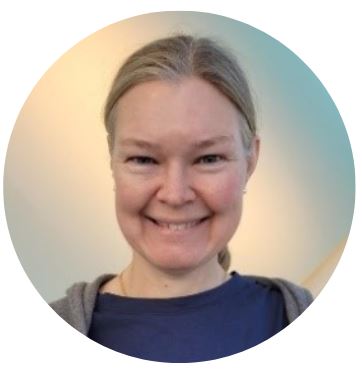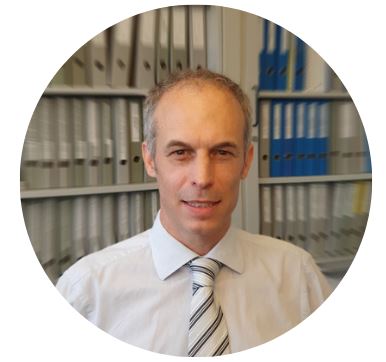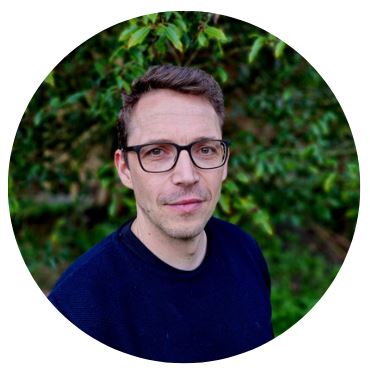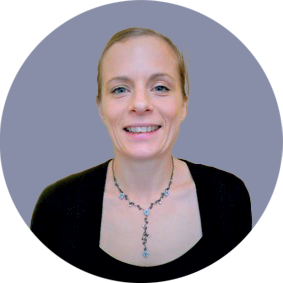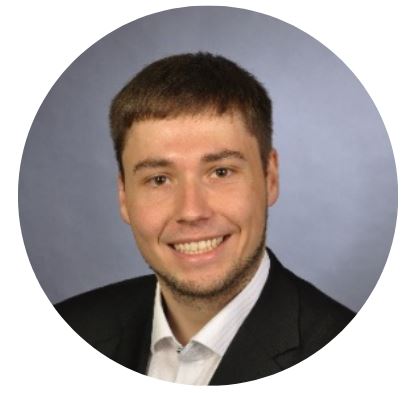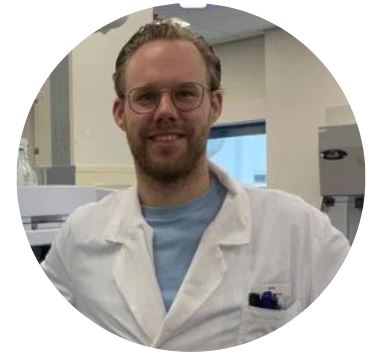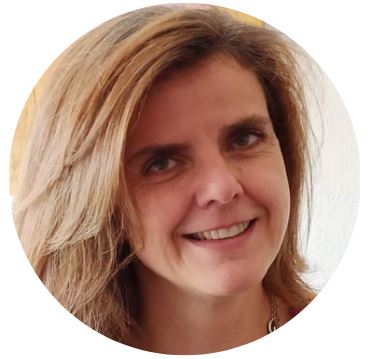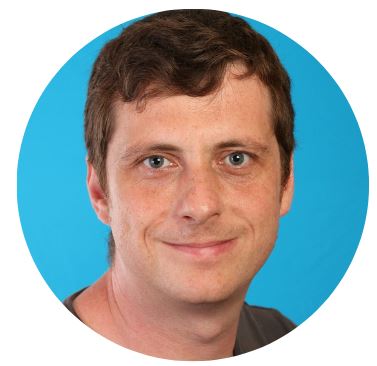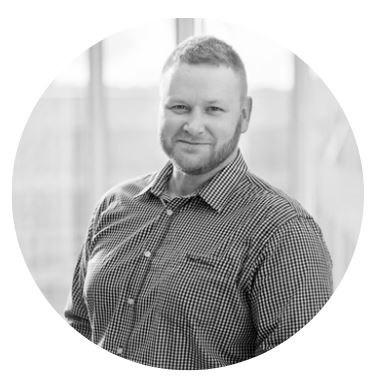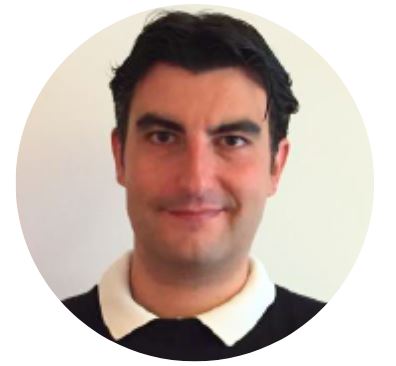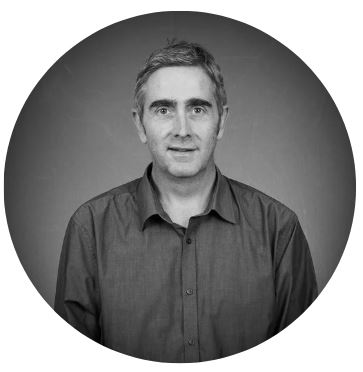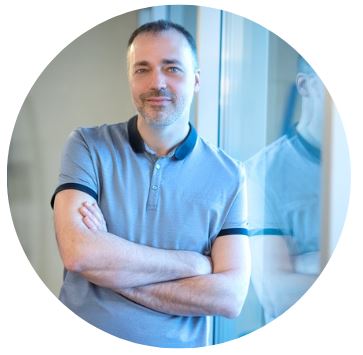5th European PhenoPrep Symposium in Barcelona

28 - 30 October 2024 | Hotel Four Points Barcelona, Spain
We are pleased to present to you our final scientific program, agenda and speakers
Scientific Program:
Session A: Peptides & Oligonucleotides and Their Conjugates
A1 - Large Scale Purification of Peptides with MCSGP Under GMP - Dr. Ralf Eisenhuth, BACHEM, Switzerland
A2 - Case Study : From Screening to Scale-up of Therapeutic Peptide - Nick Zilverschoon, ASPEN PHARMA, Netherlands
A3 - Purification Challenges in the Industrial Total Synthesis of Amanitin Derivatives - Gerd Osswald, CARBOGEN AMCIS, Switzerland
A4 - Uv-Vis Spectra-Based Pat in Peptide Purification Process Development and Production -Jörg Kittelmann, NOVO NORDISK, Denmark
A5 - Chromatography of Peptides, Oligonucleotides, and Their Conjugates for Progressing Early Drug Discovery Projects - Annika Langborg Weinmann, ASTRA ZENECA, Sweden
A6 - Process Validation of a Peptide Purification – The Use of Statistical Tools to Challenge Our Thinking - Steve McIntyre, ALMAC Group, United Kingdom
A7 - Method Development Considerations When Looking at Large Scale Purification of GLP-1s- Dr. Helen Harrigton, PHENOMENEX, United Kingdom
A8 - Milligram-Scale Prep-SFC: An Investigation of New Modalities Purification With Water-Rich Mobile Phases - Stéphane Dubant, REACH SEPARATIONS, France
Session B: LNPs & Small Pharma APIs
B1 - Revolution in Supercritical Chromatography - Regis Back, SFC PROCESS, France
B2 - Synthetic Lipids – Is There One Technology to Purify Them All - Dr. Alexander Klaiber, CORDEN PHARMA, Switzerland
B3 - Strategies and Approaches for Analysis and Purification for Ionizable Lipids - Pilar Lopez, Eli LILLY, Spain
B4 - Long Chain Omega-3 Concentration: Technologies Overview - Roberto Fronzoni, KD Pharma, Germany
Agenda:
Monday 28 October 2024
13.00 – 14.00 Registration & PhenoPREP 2024 Kick-off session
14.00 – 16.00 Session A Kick-Off : Peptides & Oligonucleotides and Their Conjugates
A1 - Large Scale Purification of Peptides With MCSGP Under GMP – Dr. Ralf Eisenhuth, BACHEM, Switzerland
A2 - Case Study : From Screening to Scale-up of Therapeutic Peptide Purification – Nick Zilverschoon, ASPEN PHARMA, Netherlands
A3 - Purification Challenges in the Industrial Total Synthesis of Amanitin Derivatives – Gerd Osswald, CARBOGEN AMCIS, Switzerland
16.00 – 16.00 Coffee Break / End of the day
19.00 Dinner
Tuesday 29 October 2024
09.00 – 10.30
A4 - UV-Vis Spectra-based PAT in Peptide Purification Process Development and Production – Jörg Kittelmann, NOVO NORDISK, Denmark
A5 - Chromatography of Peptides, Oligonucleotides, and Their Conjugates for Progressing Early Drug Discovery Projects – Annika Langborg Weinmann, ASTRA ZENECA, Sweden
10.30 – 11.00 Coffee Break
11.00 – 12.00
A6 - Process Validation of a Peptide Purification – The Use of Statistical Tools to Challenge Our Thinking – Steve McIntyre, ALMAC Group, United Kingdom
12.00 – 13.30 Lunch
13.30 – 15.30
A7 - Method Development Considerations When Looking at Large Scale Purification of GLP-1s – Dr. Helen Harrigton, PHENOMENEX, United Kingdom
A8 - Milligram-Scale Prep-Sfc: An Investigation of New Modalities Purification With Water-Rich Mobile Phases – Stéphane Dubant, REACH SEPARATIONS, France
15.30 – 16.00 Coffee Break
16.00 – 16:45 Session B Kick-Off : LNPs & Small Pharma APIs
B1 - Revolution in Supercritical Chromatography – Regis Back, SFC PROCESS, France
16:45 End of the day
19.00 Dinner
Wednesday 30 October 2024
09.30 -11:00
B2 - Synthetic Lipids – Is There One Technology to Purify Them All – Dr. Alexander Klaiber CORDEN PHARMA, Switzerland
B3 - Strategies and Approaches for Analysis and Purification for Ionizable Lipids – Pilar Lopez, Eli LILLY, Spain
11.00 – 11.30 Coffee Break
11.30 – 12.30
B4 - Long Chain Omega-3 Concentration: Technologies Overview – Roberto Fronzoni, KD Pharma, Germany
12.30 End /& PhenoPREP 2024 Closing Remarks
Meet our Speakers
Presentations abstracts
Annika Langborg Weinmann
ASTRA ZENECA, Sweden
Annika Langborg Weinmann is an associate principal scientist in the Separation Science Laboratory at AstraZeneca in Gothenburg, Sweden. During her 22 years at AstraZeneca, she has built up great knowledge in chromatography, both in analytical and preparative scale. She has been part of building up the Separation Science Laboratory and introducing preparative chromatography to the Gothenburg site. As an experienced separation scientist, she has adopted various chromatographic techniques. Initially, her focus was mainly on achiral separations of small pharmaceutical compounds in semi-preparative scale where she implemented supercritical fluid chromatography with mass triggered fraction collection at AZ. As the trend in pharmaceutical industry is to develop medicines based on synthetic biomolecules, she has most recently broadened her chromatographic competence by working on separation of larger molecules such as peptides, oligonucleotides and conjugates of peptides and oligonucleotides.
Chromatography of Peptides, Oligonucleotides, and Their Conjugates for Progressing Early Drug Discovery Projects - Session A
Today, there is a growing trend to develop synthetic biomolecules, like peptides, oligonucleotides and conjugates, as therapeutic drugs. In general, these molecules are synthesized on solid support with stepwise addition of building blocks. Hence, each addition often results in an accumulation of several impurities with similar structures as the target. Purification by chromatography is, therefore, crucial for supporting projects with compounds of the right quality. Additionally, we need to consider an exchange of the counter ion to one that is tolerated in the intended test.
Due to the complex impurity pattern as well as the diverse properties of the compounds, a variety of techniques and optimized chromatographic methods are required. To enable delivery, method development, purification and quality control is conducted for each compound. Here, we show the different purification strategies utilized in our Separation Science Laboratory to provide peptides, oligonucleotides and conjugates of them with right quality to projects.
Gerd Osswald
Carbogen AMCIS, Switzerland
Gerd studied chemistry at the University of Freiburg and RWTH Aachen in Germany with a focus on organic chemistry, enantioselective synthesis and enzymatic synthesis. He has worked for more than 20 years at Carbogen Amcis AG, a CDMO with headquarters in Switzerland. Gerd started his professional career in process research and development and managed numerous projects as project leader. He has accompanied projects from early phase development up to validation activities and commercialization. For the last seven years he has been group leader of “Chromatography Services”, a specialized team working on preparative chromatography, lyophilisation and cross-flow filtration techniques in development and on production
Purification Challenges in the Industrial Total Synthesis of Amanitin Derivatives - Session A
Amanitin is one of the most deadly toxins found, for example in the death cap mushroom (Amanita phalloides). It is a highly modified bicyclic octapeptide. Amanitin derivatives that are conjugated with antibodies are used as antibody drug conjugates (ADCs) in specific cancer therapies.
We give an insight into the total synthesis of Amanitin derivatives and the challenges of purification in multi-step synthesis using a variety of complex chemical manipulations as well as peptide coupling technologies in solution and solid phase. A total of four chromatographic purifications are performed in the GMP part of the synthesis. Three prep. HPLC purifications with different functionalized RP-phases are performed during the formation of the target peptide, the last chromatography is a cation exchange chromatography on the ADC.
Jörg Kittelmann
NOVO NORDISK, Denmark
Jörg Kittelmann is a Principal Scientist at Novo Nordisk specializing in purification process development and scaling for peptides and proteins. He has over 8 years of experience at the company and focuses on process analytical technology implementation and overall process sustainability. Jörg holds a PhD in Biotechnology from Delft University of Technology.
UV-Vis Spectra Based PAT in Peptide Purification Process Development and Production - Session A
Recent advancements in real-time process analytical technologies (PAT) have significantly improved our insight into chromatographic processes. However, this progress has also introduced greater complexity into the associated mathematical models and equipment, alongside the challenge of managing substantial data flows. These complexities can pose obstacles to scaling up processes and consistently implementing them across multiple facilities.
Dr. Helen Harrington
Senior product manager Biopharma- Phenomenex
Helen graduated with a First Class BSc (Hons) in Chemistry and a PhD in synthetic organic chemistry from the University of Manchester, specializing in Shikimic acid analogues for malaria treatment. She then conducted post-doctoral research on nitrenium ions for Ebola antiviral agents at the University of Illinois in Chicago. Helen joined Phenomenex as a technical sales consultant, spending 10 years supporting large purification companies and the UK sales team. In 2017, she became a technical specialist in the biopharma industry, and after five years, she transitioned to senior product manager, focusing on emerging biopharma markets.
Method development considerations when looking at large scale purification of GLP-1s - Session A
Method development considerations when looking at large scale purification of GLP-1s. This talk will focus on selectivity and the balance of purity vs yield when considering large scale synthesis of synthetic peptides.
Dr. Alexander Klaiber
Corden PHARMA, Switzerland
Alexander Klaiber studied in Tübingen where he received his doctorate in the field of organic chemistry specializing in the synthesis of carbohydrate derivatives. He then joined CordenPharma Switzerland as a post-doc in 2023. In November 2023, he joined the Purification Team of Markus Juza, focusing on method development for the purification of lipids and small molecules.
Synthetic Lipids – is there one technology to purify them all - Session B
Synthetic lipids (e.g. phospholipids, glycerophospholipids, sphingolipids, and many more) and lipid conjugates have been gaining significant importance in recent years as drug targets, therapeutic molecules, and liposomes. The potential of liposomes as drug delivery carriers has been extensively explored via versatile administrative routes such as parenteral, oral, pulmonary, nasal, ocular and transdermal.
CordenPharma provides complex lipid and phospholipid derivatives from multi-gram to multi-ton scale via chemical synthesis. Such compounds have recently been used with great success in mRNA lipid nanoparticle (LNP) formulation.
Traditionally such molecules are purified by normal phase chromatography. Alternative purification technologies of lipophilic compounds for reducing organic solvent usage include aqueous/non-aqueous reversed-phase chromatography (NARP) , and super critical fluid chromatography that can be considered to supplant organic solvents with more benign alternatives.
A number of case studies based on such alternative technologies for purification of lipophilic compounds will be presented, replacing traditional organic solvents in order to achieve greater sustainability and/or to reduce both environmental and operational costs.
Nick Zilverschoon
ASPEN PHARMA, Netherlands
Nick Zilverschoon has an MSc in Chemistry. He is a Junior Scientist in the Development and Technical Support (DTS): Analytical Science Department at Asphen Pharma.
Case Study : From Screening to Scale-up of Therapeutic Peptide - Session A
At our site in Oss, the Netherlands, we have established extensive experience and a solid reputation of producing cGMP peptides with batch to batch reproducibility. This presentation shows our purification strategy of one of our recent NPD products from lab to factory.
Pilar Lopez
Eli LILLY, Spain
Pilar López is a Sr. Principal Chemist at Alcobendas Discovery Chemistry Research and Technologies, Eli Lilly and Company. She joined Eli Lilly in 2002 as part of the Analytical Technologies team. She has been involved in the enablement of the Automated Purification and Chiral Purification labs. Her main expertise is related to chiral chromatography. She is a key expert on method development and preparative separations from mg to multigram scale, applying SFC and HPLC techniques. Implementation of SFC as a routinary technology in these labs, either for chiral or achiral analysis and purifications, is one of her main contributions to the field.
Strategies and Approaches for Analysis and Purification For Ionizable Lipids - Session B
Ionizable lipids (ILs) are the main component of LNPs. We describe in this presentation the challenge transitioning from small molecules to ILs purification and characterization.
Dr. Ralf Eisenhuth
BACHEM, Switzerland
With a Ph. D. in organic chemistry from the University of Karlsruhe (KIT), Ralf Eisenhuth joined Bachem AG in 2008 as a team leader. Over the last two decades, he has held several positions at Bachem; ranging from process development to leading the large-scale purification department at Bachem´s main site in Bubendorf. In his current position as Principal Scientist, his focus is on innovative purification technologies and processes for oligonucleotides and peptides. In recent years, he has spent most of his time establishing Bachems capability for large scale MCSGP purification of oligonucleotides and peptides under GMP.
Large Scale Purification of Peptides With MCSGP Under GMP - Session A
Throughout industry the trend goes from producing batches to continuous production. Due to the increasing need for efficient methods to produce peptides and oligonucleotides at large scale, Bachem was the first TIDES manufacturer to introduce Multicolumn Counter-current Solvent Gradient Purification (MCSGP) systems for their continuous purification under GMP. The presentation will have a special focus on process robustness using data from the first GMP manufacturing campaigns, process validation, and selected developmental work.
Regis Back
SFC Process, France
Head of the SFE Process Mechanical Design Office since 2023, Regis has an atypical background combining fundamental research and technological development. He obtained his doctorate in Biochemistry & Structural Biology in 2012, then carried out a first post-doc at the Ecole Polytechnique de Palaiseau then a second at the IGBMC in Illkirch. His research themes were the structural determination of proteins and protein complexes of interest by NMR and X-ray diffraction. Purification by chromatography was therefore at the center of his research activity. Passionate about mechanics, he returned to university to complete his Bachelor of Engineering at the Ecole des Mines de Nancy in 2019. Through his career path at SFE Process, Regis has acquired a wide range of skills and expertise from biochemistry to mechanics at process scale.
Revolution in Supercritical Chromatography - Session B
SFE Process is a creator of innovative solutions, passionate about supercritical fluid technology. Innovation is part of this company’s DNA and their primary interest is really to challenge what’s already existing on the market both in terms of solution and equipment to subsequently approach the field of supercritical fluids with fresh eyes as for example, using water as a co-solvent in SFE process handling to selectively extract peptides and polyphenols from natural crudes for instance.
SFC was launched subsequent to their groundbreaking well-established technologies taken from their SFE Process brand, to support customers even further, by bringing the SFC technique to another level, digging on the depth and valuable potential of this technique for either small or as large molecules, as a the way of supporting customer need around process scalability from early stage drug development to full manufacturing scale.
Roberto Fronzoni,
KD Pharma, Germany
KD pharma Group is one of the largest Omega-3 fatty acid producers in the world. It has successfully utilized its technology portfolio to help bring Omega-3 API to market. Roberto has a master’s degree in chemistry and more than 20 years of experience in the field of oil chemistry, scale up, process development and optimization. He has developed his skills by working in leading Omega-3 companies around the world. His expertise ranges from multi-step gram to ton-scale manufacture of Active Pharmaceutical Ingredients (APIs).
Long Chain Omega-3 Concentration: Technologies Overview - Session B
Omega−3 fatty acids are polyunsaturated fatty acids (PUFAs) characterized by the presence of a double bond three atoms away from the terminal methyl group in their chemical structure. Methods for concentration of PUFA are numerous, we give you an overview on the technologies that allow production of Omega-3 fatty acids.
Steve McIntyre
ALMAC Group, United Kingdom
Steve has the responsibility for process development and cGMP manufacture of large molecules at Almac, including peptides, peptide conjugates and imaging agents. He has worked in the pharmaceutical industry as a process development chemist since 1992, initially in small molecule chemistry before switching to peptide chemistry approximately 10 years ago. He studied at the University of Glasgow and the University of Basel.
Process Validation of a Peptide Purification – The Use of Statistical Tools to Challenge Our Thinking - Session A
The use of peptides as therapeutics is now firmly established within the pharmaceutical industry, with an explosion of interest most recently sparked by the success of the GLP-1 inhibitors, semaglutide and tirzepatide. In parallel, there has been an increased scrutiny from regulators on peptides, which are now seen somewhere between small molecules and biologics, like ADCs. This increased regulatory scrutiny coupled with the improvement in the analysis of peptides has led to a challenge in the manufacture of peptides for clinical and commercial supply, specifically around impurity control. This presentation will focus on the application of statistical tools to allow a deep understanding of a peptide purification, culminating in the commercial supply of a highly purified peptide product for therapeutic use.
Stéphane Dubant,
REACH SEPARATIONS, France
Stéphane received a training in organic synthetic chemistry followed by a PhD thesis on the chemical origin of life, he then quickly moved towards chromatography. He worked at Pfizer as a purification specialist (SFC, HPLC, CCC/CPC, nanofiltration) then at Waters and Agilent, providing expertise and support in liquid and supercritical fluid chromatography for analysis, extraction, and purification in various application areas. From these different work experiences, he kept a keen interest for supercritical fluids and in particular supercritical fluid chromatography (SFC).
For the past 2 years, Stéphane has installed and been at the head of the purification and method development service laboratory of Reach Separations in Strasbourg with expertise in SFC, ranging from 100% CO2 methods to highly polar compounds.
Milligram-scale prep-SFC: an investigation of new modalities purification with water-rich mobile phases - Session A
With advances in activity-screening technologies, the amount of material needed to evaluate the potency of a molecule/compound is getting lower and lower. Therefore, requests for mini-scale purification are increasing. At the same time, new modalities (such as peptides, oligonucleotides or PROTACS for example) are on the rise, and fall beyond the traditional “Rule of Five” in terms of properties, making them sometimes unamenable to “standard” chromatographic purification.
During this presentation we will present the approach we have taken and the result we obtained, using water-rich mobile phases in SFC, to try to purify these new families of compounds on an “analytical-scale” preparative SFC system.

